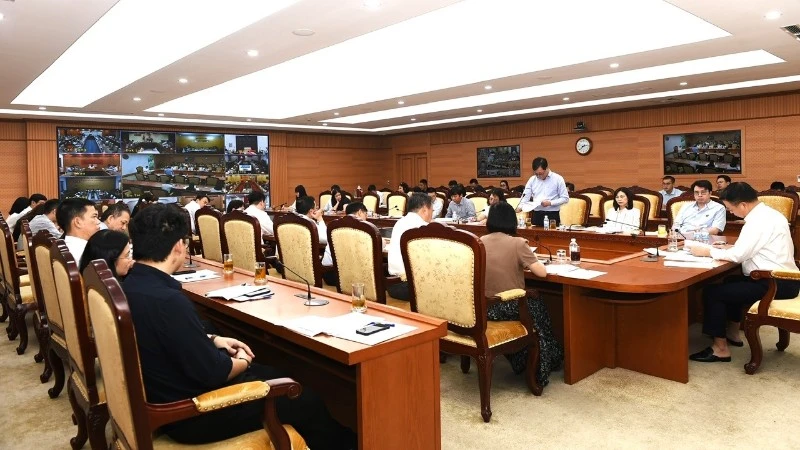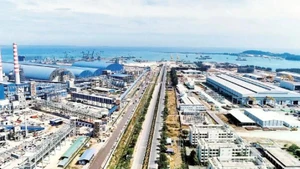Avoiding budget disruption
The reorganisation of administrative units and the development of a two-tier local government model is an important policy aimed at streamlining the apparatus and improving the effectiveness and efficiency of state governance. To ensure that the transition does not disrupt public finance and budget operations, the Ministry of Finance has promptly issued specific guidelines and directives.
In the field of state treasury, Nguyen Manh Cuong, Deputy Director of the State Treasury, stated that current regulations on account opening and payments via the State Treasury have been fully promulgated in Decree 11/2020/ND-CP, Circular 18/2020/TT-BTC (amended by Circular 41/2025/TT-BTC), and Circular 324/2016/TT-BTC. Specifically, for the newly established commune level, the Ministry issued Official Letter 11357/BTC-KBNN (dated July 25, 2025) and Official Letter 9682/BTC-KBNN (dated June 30, 2025).
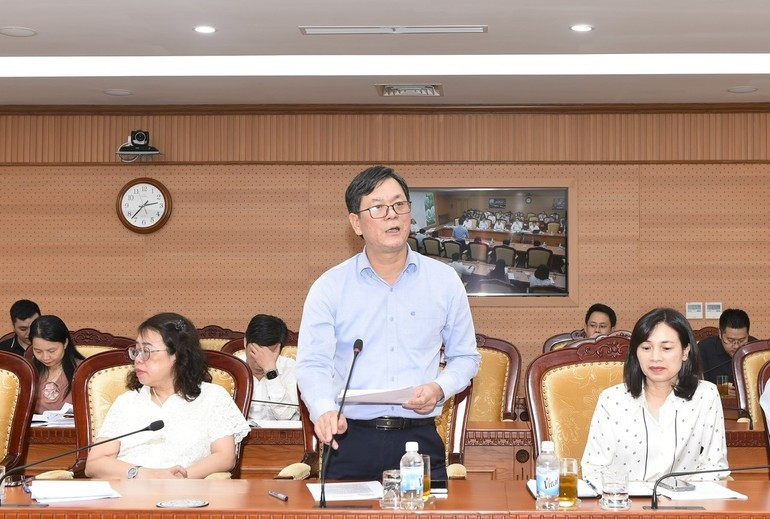
However, according to preliminary statistics, many commune-level units have not opened accounts at the State Treasury. Therefore, the State Treasury proposed that provincial people's committees direct communes to urgently proceed with implementation, while also requesting that the Department of Finance advise the people's councils to issue resolutions on the decentralisation of revenue sources and expenditure tasks in accordance with the guidance in Official Letters 4205/BTC-NSNN and 11113/BTC-NSNN.
In cases where budget estimates have not yet been approved by the relevant people's council and people's committee, temporary advances must be made in accordance with Article 53 of the Law on State Budget to ensure essential expenditures. At the same time, communes must finalise their organisational structure, appoint chief accountants, open accounts at the State Treasury, and reconcile transferred data relating to the merging of communes and districts into the new units.
Nguyen Minh Tan, Deputy Director of the State Budget Department, affirmed: “The overarching principle is to avoid any disruption to the budget.” Accordingly, Official Letter 4205/BTC-NSNN (dated April 2, 2025) provides detailed guidance on allocating the 2025 state budget estimates post-restructuring. The new communes will inherit all budget responsibilities and authorities from the former units; revenue sources and spending mechanisms will remain unchanged.
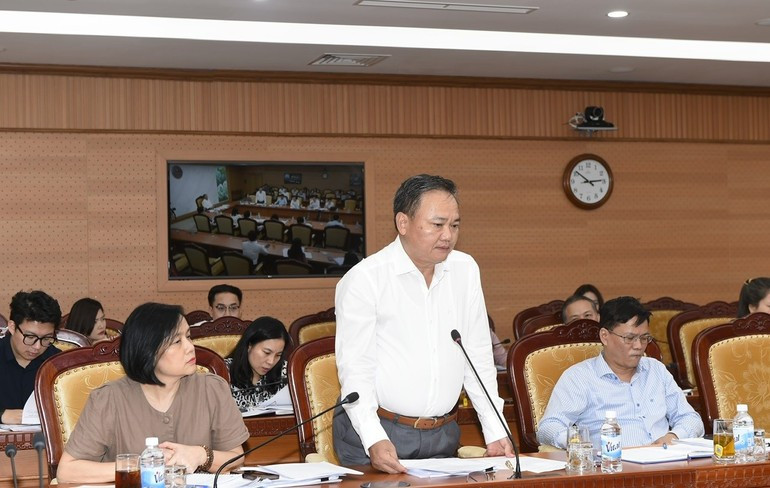
The prime minister also issued Decision 1390/QD-TTg (dated June 27, 2025) which serves as the legal basis to ensure the continuous implementation of budget estimates without disruption.
The Ministry of Finance issued Official Letter 8911/BTC-NSNN (dated June 20, 2025) on guiding the decentralisation of revenue sources and expenditure tasks between the province and communes, ensuring clear authority, legal compliance, and practical applicability. Communes have also been guided on preparing the 2026 budget estimates and the three-year financial plan (2026–2028) under Circular 56/2025/TT-BTC.
At the conference, representatives of many localities shared difficulties encountered during implementation. According to Tran Song Tung, Vice Chairman of the People's Committee of Ninh Binh Province, while unforeseen problems have arisen in the implementation of the two-tier local government model, under the leadership and direction of the central government and the Ministry of Finance, the province has fulfilled its political tasks well, serving both the public and enterprises. Regarding financial mechanisms and policies, the province has encountered no major obstacles. For issues within the province’s remit, the provincial authorities will review and resolve them in the coming week.
In Thanh Hoa Province, Le Quang Hung, Director of the Department of Finance, stated that questions raised by the localities regarding financial and budgetary matters in the implementation of the two-tier local government model had been answered by the Ministry of Finance’s specialised units. Following the restructuring, the province now has 166 communes and wards. Currently, the province is facing difficulties in finding qualified personnel to appoint as chief accountants and has proposed that the Ministry of Finance consider relaxing appointment criteria so that remote and disadvantaged communes and wards can meet the implementation requirements.
On the management of public assets, Nguyen Tan Thinh, Director of the Department of Public Asset Management, said the ministry had established a task force and inter-sectoral working group to assign officers to each locality to assist in handling public assets post-merger.
Standards and norms for office buildings are currently governed by Decree 155/2025/ND-CP. Regarding official vehicles, Thinh acknowledged that many border communes still lack such vehicles. However, transferring old vehicles from ministries is not feasible as they are already degraded and no longer suitable. Localities need to proactively procure new vehicles in accordance with set norms.
The Ministry of Finance issued Official Letter 8400/BTC-QLCS (dated June 14, 2025) requiring ministries to coordinate with localities in developing plans for asset arrangement and handling. In particular, Official Letter 11120/BTC-QLCS (dated July 21, 2025) provides a standard reporting template to facilitate local consolidation and monitoring. The ministry is also developing software to support the consolidation and reporting of public asset rearrangements.
Synchronous solutions, clear responsibilities
Concluding the conference, Deputy Minister of Finance Nguyen Duc Chi said that “The issues raised by localities mainly concern matters within local jurisdiction. Localities must take proactive steps to resolve them within their authority, avoiding blame-shifting.”
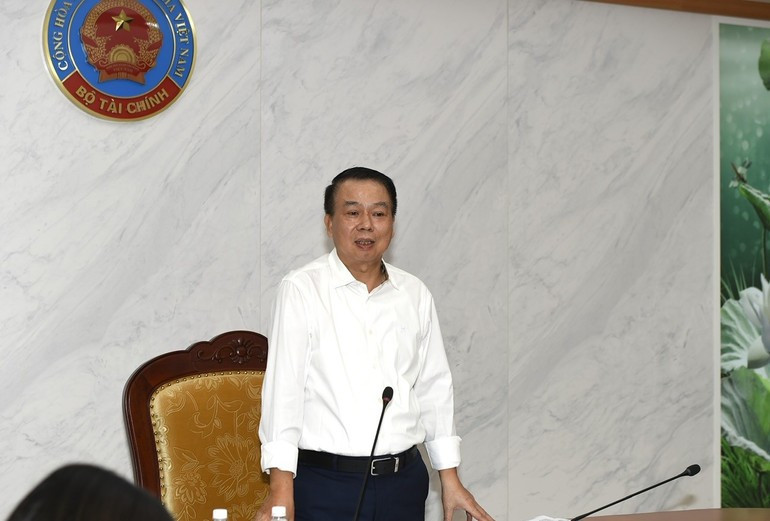
The deputy minister requested that local Departments of Finance play a core role, closely monitor the situation in communes, wards, and special zones to promptly advise and assist, ensuring no financial or budgetary bottlenecks.
Regarding the appointment of chief accountants, the deputy minister assigned the Department of Accounting and Auditing Supervision to review, propose solutions, and report to the ministry’s leadership next week.
The Ministry of Finance will also establish six task forces to coordinate closely with provinces and cities to directly listen and resolve challenges during the implementation of the two-tier local government model.
On training, the deputy minister emphasised “If multiple topics can be covered in a single training session, that would be very effective. The Ministry of Finance stands ready to organise training courses to ensure localities have competent financial staff capable of meeting new requirements.”
“We must resolutely and collectively ensure that issues relating to finance, budget, accounting, and public assets do not impede or diminish the effectiveness of implementing the two-tier local government model,” said Deputy Minister Nguyen Duc Chi.
